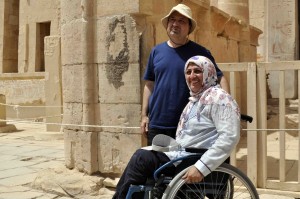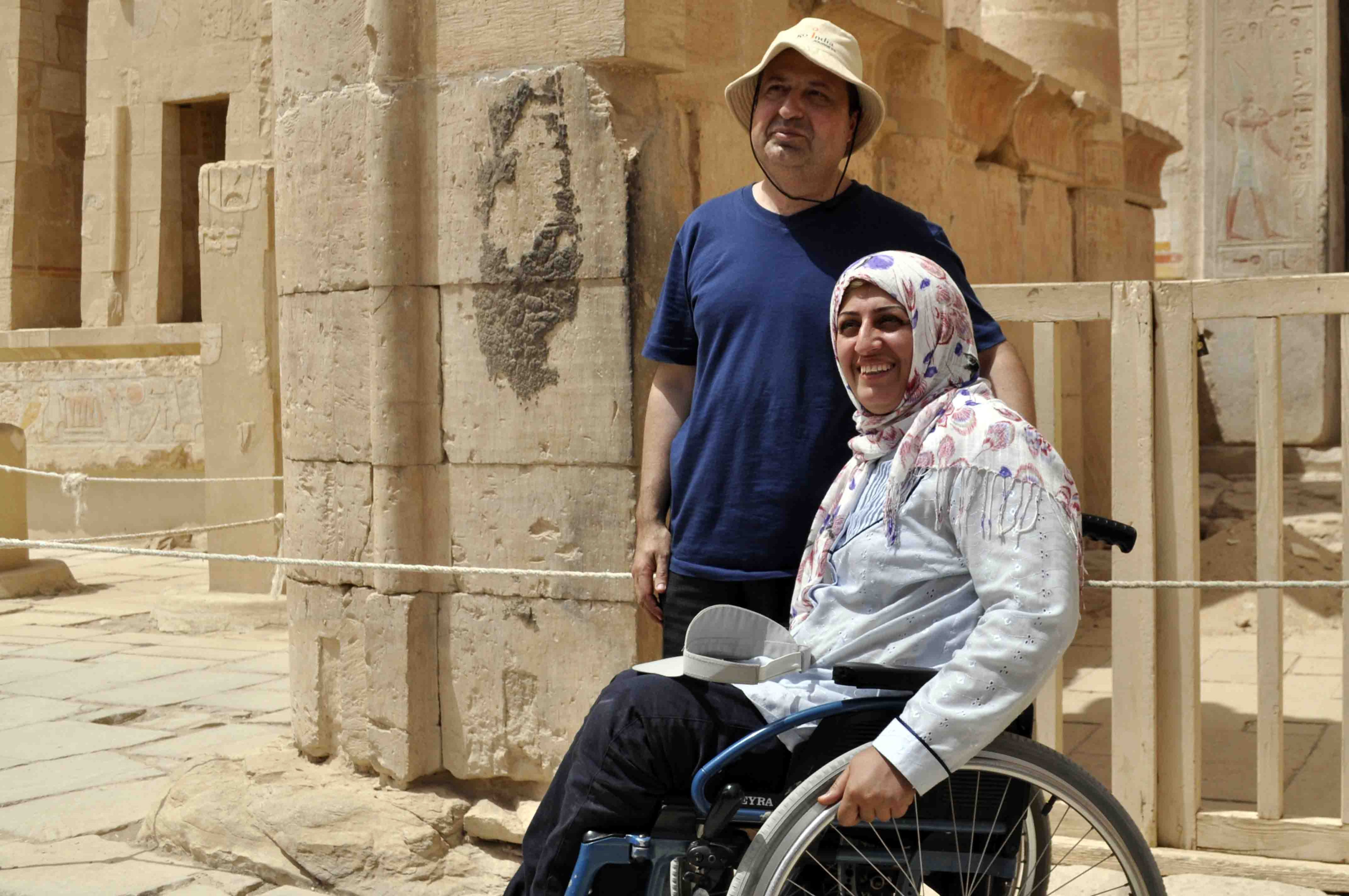
(AFP Photo)
By: Nada Badawi
Iranian tourists visiting Egypt will face restrictions in the areas they are allowed to visit, and may be limited to sites such as the ancient city of Luxor and Red Sea resort areas like Sharm El-Sheikh, according to Hatem Mounir, secretary of the Tourism Chamber in the Red Sea Governorate.
“We did not impose any regulations that could harm tourism in Egypt. Iranians are most welcome to visit Egypt whenever they want,” said Mounir. “The regulations are only imposed to protect the country’s national security and to make sure no one interferes in the country’s internal politics.”
According to independent television channel ONTV, the Muslim Brotherhood’s media spokesperson, Gehad El-Haddad, told the media that the Egyptian Ministry of Foreign Affairs “set red lines so that no one interferes in the country’s politics”.
El-Haddad said “the decision should be looked at in detail, bearing in mind its repercussions for the Egyptian economy”.
The news comes following Saturday’s flight from Cairo International Airport to Tehran, the first commercial flight between the two countries in 34 years
More than 50 tourists arrived in Aswan on Sunday, visiting landmark sites with tight security controls. The group travelled to the ancient city of Luxor on Monday.
Minister of Tourism Hesham Zaazou told the media that fears of the spread of Shia Islam in Egypt are exaggerated.
However, Hossam Hazzaa, a member of the Tourism Committee of Foreign Affairs, highlighted what he sees as possible problems with Iranian tourism in Egypt.
“From an economic perspective, tourism sites in the Red Sea will benefit, but as for Shia sites in Cairo, such as Al-Hakim Bi Amr Allah Mosque, Iranian tourism in Egypt could be a problem for Salafis,” Hazzaa said.
Members of the Salafi movement in Egypt fear that Iran could be trying to spread Shia Islam in Egypt.
“We might see a problem similar as in Iraq where people of different faiths visit sites that are not approved by other religions,” he added.
Hazzaa drew similarities between the situation and the patterns of Israeli tourism in Egypt. “We find Israeli tourists visiting places like the Sinai and sometimes Taba, but not Cairo.”
President Mohamed Morsi has agreed to promote tourism between Egypt and Iran as part of an increase in bilateral cooperation between the two countries.
Diplomatic relations with Iran were frozen after Egypt signed a peace treaty with Israel in 1979.
Dostour Party Chairman Mohamed ElBaradei criticised the move on his Twitter account: “How come we, Sunnis and Shias, perform pilgrimage together yet we talk about preventing Iranians from visiting some of the houses of God?”
“Egypt will not get back on its feet in the absence of sensibility and with an inability to accept others,” he added.
The vice president of the Salafi Dawah, Yasser Borhamy, previously warned of a “Shia tide” in Egypt, and called for a ban on any contact with Shias.




